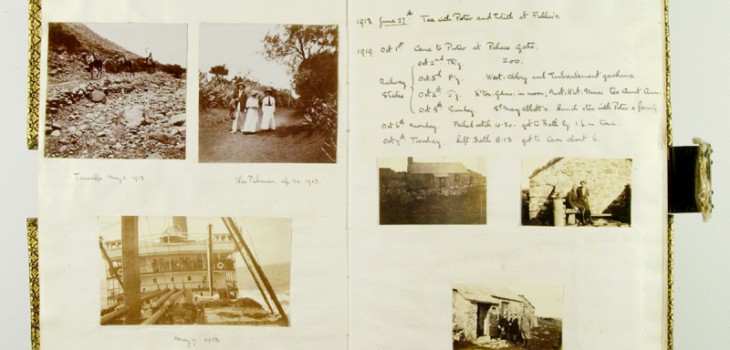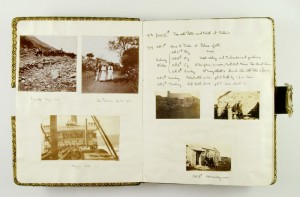The past two weeks have been something of a blur. Volunteering with the School’s archives is my first step towards qualifying as an archivist, gaining essential experience before enrolling on an MA course in Archive Management. I knew there would be a learning curve, but I certainly didn’t expect my first experience in a professional archive to be as varied or fast-paced as this has been.
Victoria and Claire were ready with a list of tasks for me to begin as soon as I arrived. Some were short, routine tasks such as removing staples and tape from paperwork (an essential conservation measure before they can be safely packaged in acid-free boxes), re-ordering photos of previous School staff in catalogue order, and listing the contents of various boxes. These were all great learning experiences, as was uploading exhibit and event photos to the School’s media library, which enables detailed descriptions and full photographer and copyright information to be attached to each photo.
There were people-facing tasks too, including helping out with the School’s Open Day on 4th February, and talking with students being introduced to the Archives collection as part of their current courses.
Other jobs involved research. Before long I was following the travel diary of Geoff and Amy Carpenter, sleeping sickness researchers who toured Western Uganda in 1921. Checking the spelling and location of places in their diary, so they could be faithfully reported in an ‘Archives Live’ dramatisation of the trip, gave me a vivid share in their excitement and interest at everything they saw.
In preparation for the centenary commemoration of the Gallipoli landings during the First World War, I searched the Archive catalogue for relevant material, and was moved by the story I uncovered. The School hosts the archive of Sir Ronald Ross, pioneer of tropical medicine, whose recommendations for treatment of dysentery saved thousands of soldiers’ lives in hospitals around the Mediterranean. However, his rueful letter to a friend reveals an often forgotten cost of war – the interruption of research that would otherwise benefit all humanity in the fight against our common enemy, disease.
My main project has been to review, temporarily number, and list the contents of a collection of 30 boxes of previously un-catalogued material. It all relates to the School’s Food Emergency Research Unit 1980s project to develop and refine Early Warning Systems for drought situations in Mali. Their aim was to help the government and aid agencies collect appropriate food-price and other information that would enable them to see emergency situations developing, even in remote areas, and to respond early in appropriate ways, so that localised drought need not result in widespread famine, forced migration, and all its associated social disruption. My journey, seeing the project from their initial background research, accumulation of contacts and reading material, and visits to Mali, all the way through to final project reports and recommendations, showed the deep thought and precious value of those outputs. It made me appreciate the work done at LSHTM, and the project bibliography alone is a valuable resource for future researchers in the field.









